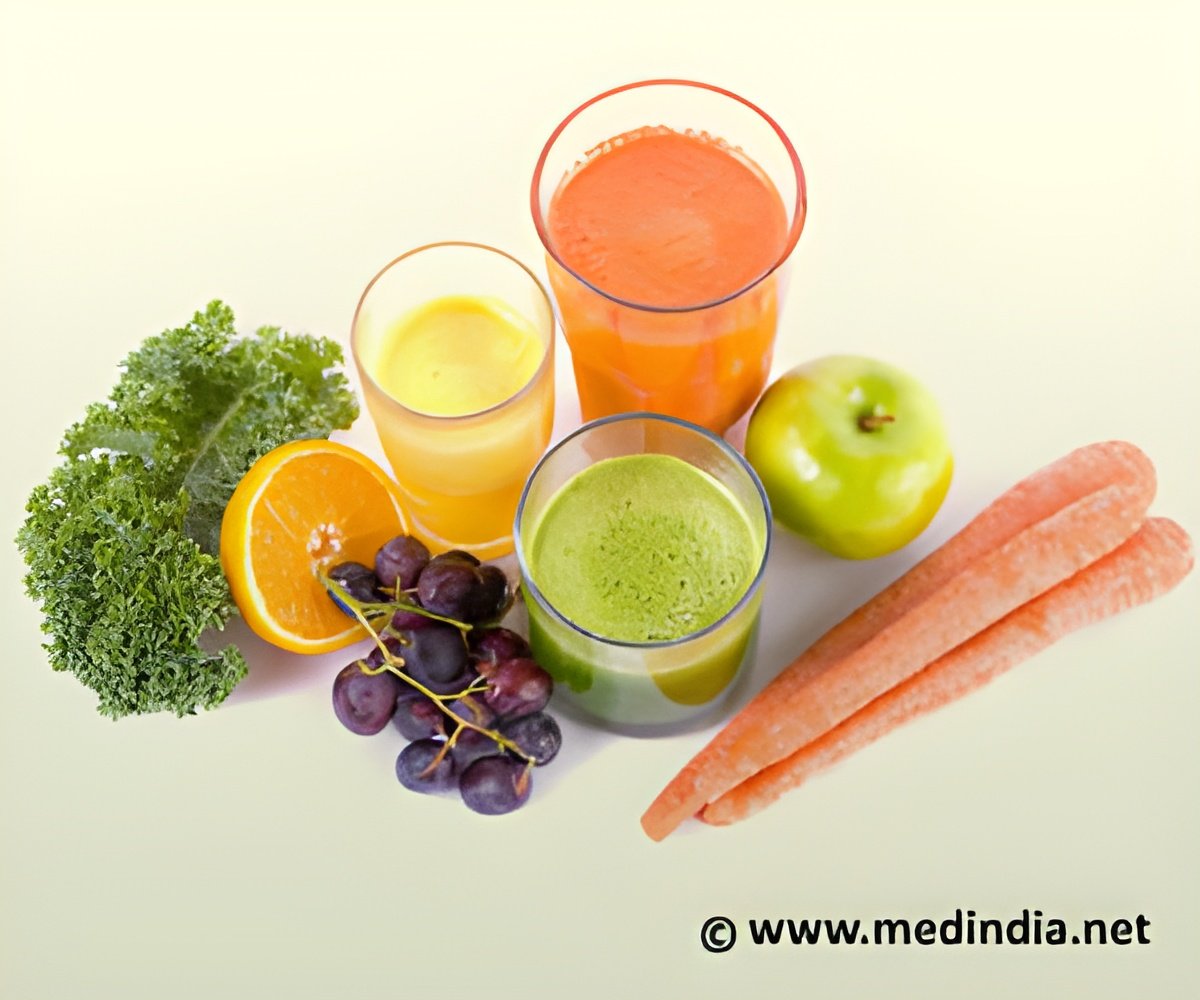A new study claims being on a fruit and vegetable-heavy diet is not effective because it doesn't make you eat less as generally thought.

But a new study carried out by Purdue University in West Lafayette, Indiana has claimed that it is not an effective long-term diet solution, the Daily Mail reported.
Researchers found that eating fresh and dried fruit before a meal help people feel fuller and eat slightly less during the main course, but being on a fruit- and vegetable-heavy diet for months made no long-term difference in the volunteers assessments of their own hunger and fullness.
In fact, drinking fruit juice before a meal actually boosted hunger and weight gain for some participants.
Volunteers who started with fruit juice ended up consuming up to 100 additional calories over a meal, according to the findings published in the International Journal of Obesity.
The findings contradict the theory that people should 'fill up' on lots of fruit and veg to help them feel full for longer and prevent overeating on sugary and fat filled snacks.
Advertisement
When the same participants started a meal with fresh and dried fruit, then went on to the main course, they ended up eating 678 calories of lunch, the fruit course included.
Advertisement
People ate about 400 more calories, on average, during the test day when they started lunch with juice, compared to when they started with solid fruit, the study revealed.
That means simply adding fruits and veggies to meet nutritional guidelines may not be enough to help people stay full and lose weight - and may actually make it harder for them to shed extra pounds, the researchers said.
So Mattes and his colleagues advised 'careful implementation of recommendations' through counselling or other nutrition programs to make sure people taking steps to improve their diet do not end up accidentally putting on more weight.
Source-ANI















